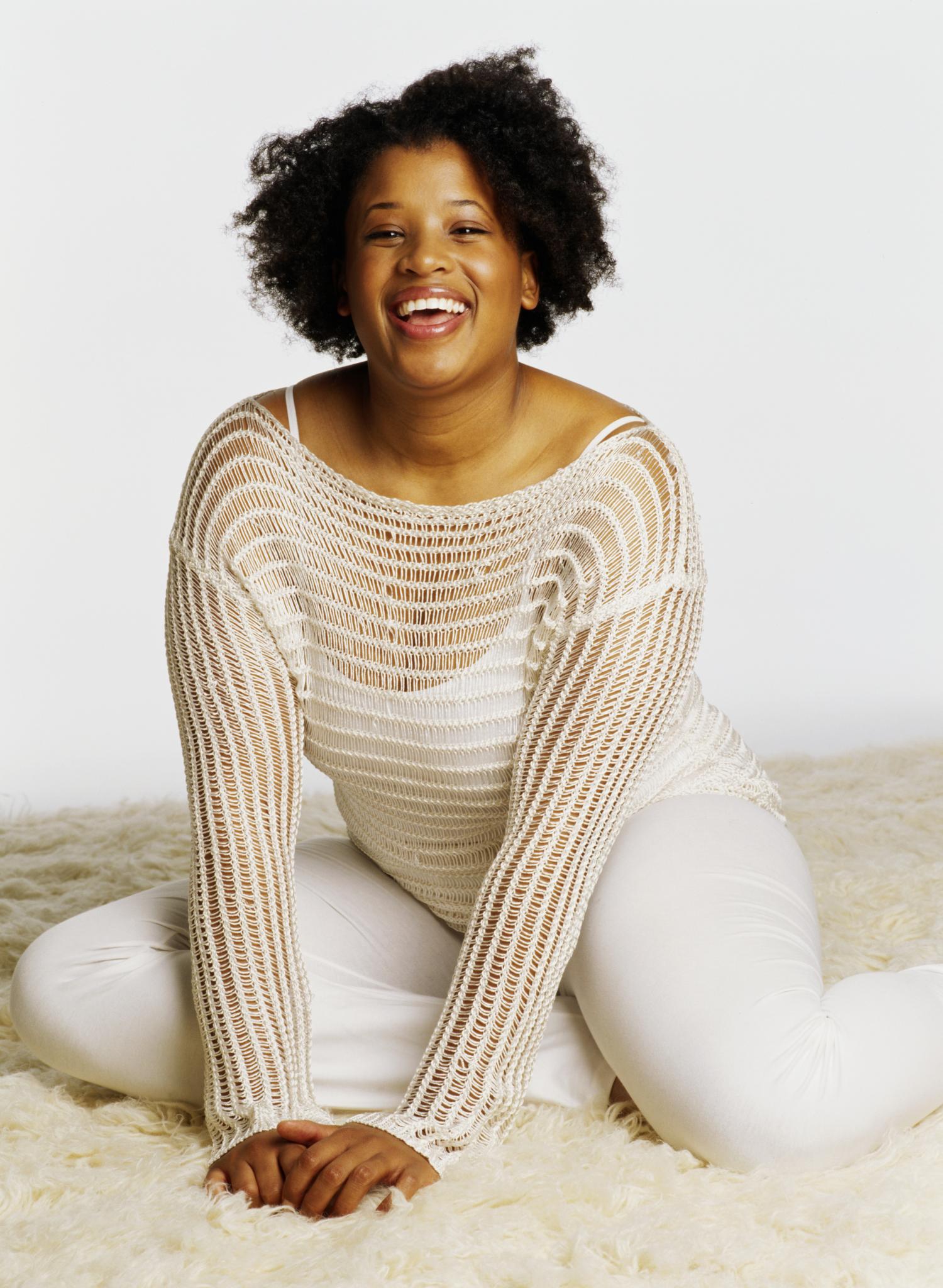
How would you look at your body if that someone, at some point in your life, either sinisterly or offhandedly, hadn’t pointed out something they thought you shouldn’t love about it?
Maybe you’d use a full-length mirror to pause and admire yourself rather than rushing through the process of getting dressed just to get the job done.
Maybe you’d say kind things to the parts that needed a gentler glance and see them as unique characteristics rather than failures of perfection.
Maybe you’d turn under the impeccably flaw-finding fluorescent lights in a department store dressing room and actually walk out with items you wanted to buy instead of leaving everything in a sad little depressed pile of defeat.
Whatever it’d look like, you’d probably be freer. Of this I am sure. I know I definitely would.
Last week, everything on the interwebs was on fire about Tess Munster, the 5’5”, size 22 model signed by Milk Model Management, the first woman of her packaged height and voluptuousness to be snagged by an agency. Progenitor of the #effyourbeautystandards body positivity movement Tess, to put it quite simply, serves. In bikinis. In bra-and-panty sets. In curve-hugging, poured-on, skintight everything. In fashions chicks her size are not supposed to want to wear, much less be confident enough to actually put on, take pictures in and slather all over social media.
The average plus-sized model is 5’8”, size 16, but Tess doesn’t apologize for her shape and the full-figuredness thereof. She’s dope anyway—really, the girl is a delight to the eyes—but her escalating celebrity has revived the conversation about who should be entitled to be in love with themselves.
Black women have statistically and traditionally grappled less with body image issues than ladies of other races. But as Tess and Meghan Trainor and Whitney Thore, the 380-pound star of TLC’s “My Big Fat Fabulous Life” liberate White girls from the impossibility of flawnessness, Black girls are being weighted by it as aesthetic standards to look more like Beyonce and Nicki and them get shoved down our gullets. We don’t want to be hip-bones-showing thin. We’re striving for eight-shaped thick with no gut but just enough breast and plenty of booty because that’s what we’re supposed to have. And when I say girls, I mean cross-generations.
I’ve had the same five-minute, lipgloss-powder-mascara routine since my freshman year of college and decided I love the look of winged eyeliner enough to stop by the MAC counter to learn how to do it myself. The makeup artist who helped me was my age and we hit it off immediately, so as we swapped jokes and general girl talk, we laughed about how thankful we were that it was winter, when fluffy coats come in handy to not only keep warm, but cover the frontal tummy bulge that plagues us both. Her because she has a six-month old baby; me because, well, food.
“But girl, this is good fat,” she chuckled, leaning in to effortlessly sweep liquid liner across my lash line. “I’m going to get this sucked out and put right here.” She patted her butt and hips. “I’m doing a fat transfer. I’m going to buy me a shape.”
I protested in that easy, familiar, girl-you-crazy way sisters tend to have with each other, even when we’ve just met, telling her that she looked quite cute as is, particularly since she’d just produced a miniature human. We volleyed comments back and forth, and even though strangers can speak trajectory-altering words into your life at any given time, I know nothing I’d say changed her mind. She was unswayed and unconvinced.
I felt for her, though, because something is telling her she’s not good enough as is and that whatever is going to keep speaking to her right up until she ties on a paper gown and allows herself to be escorted to a procedure room. I know that feeling too well to not empathize with whoever is experiencing its common sense-paralyzing effects. You envision how much better you’ll feel and look if this was like that instead of the way that it is, and you either learn to eventually embrace, perhaps even celebrate it, or you hate it and curse it in your mind.
We can’t change the hurtful, disparaging comments people say about us—sometimes because they’re hurting themselves, sometimes because they’re snot-faced jerks—but we can control how we respond to them, how we internalize them, how we let them resonate in our minds. It’s a great time to talk about body acceptance and self-love and spread it around to friends, daughters, makeup artists and, most importantly, ourselves. Internalize it for you and share it with a sister.
Because as much as we protest when we hear another woman express a perceived shortcoming in her beauty, we need to be as vehement about defending our own.
Writer Janelle Harris is a cheerleader of Black girl power and a sickeningly chipper morning person. Chat her up on Facebook or Twitter.
